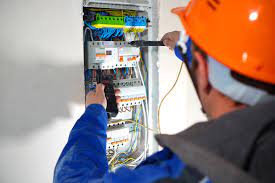
Electrical Installation: What You Need to Know Before Starting Your Project
Electrical damage is one of the most common and expensive home hazards. Major electrical problems can cost thousands of dollars to repair, not to mention the danger they can pose to your family. Electrical damage has many causes, from natural disasters to everyday wear and tear. Fortunately, there are steps you can take to protect your home and appliances from electrical damage. In this article, we’ll explore the most common causes of electrical damage, explain why home coverage is so important, and offer practical tips to help you keep your property safe.
1. Common Causes of Electrical Damage
electrical installation can be caused by many factors, including lightning strikes, power surges, faulty wiring, and natural disasters such as floods and hurricanes. Lightning strikes are particularly dangerous for homes as they can start fires or fry electronics. Power surges are also a common cause of electrical damage, and they can happen at any time. Faulty wiring is another common cause, particularly in older homes. Over time, the insulation on electrical wires can wear down, and this can lead to wires touching and overloading. Finally, natural disasters such as floods and hurricanes can easily damage your home’s electrical system and appliances.
2. Importance of Home Coverage
Home coverage can help you protect your property and appliances from electrical damage. Home coverage is essentially an insurance policy that covers unexpected losses or damage to your home and personal property. Home coverage can help you replace or repair damaged appliances, and it can also help cover the cost of electrical repairs and other associated expenses. Home coverage can be especially helpful for people who live in areas prone to natural disasters or power outages.
3. Tips for Protecting Your Property and Appliances
There are several practical steps you can take to protect your property and appliances from electrical damage. First, invest in surge protectors for your electronics. Surge protectors can help prevent power surges from causing damage to your electronics. Second, make sure your home’s wiring is up to code. This will help prevent electrical fires and other hazards. Third, consider upgrading your home’s electrical system if it’s old or outdated. Finally, be prepared for natural disasters by keeping an emergency kit on hand that includes flashlights, batteries, and other essential items.
4. Common Types of Home Coverage
There are several types of home coverage available, and it’s important to choose the right one for your needs. Homeowners insurance, for example, covers damage caused by a variety of events, including fire, theft, and natural disasters. Appliances insurance, on the other hand, covers your appliances against mechanical breakdowns that happen as a result of electrical failure. Some companies offer customized plans that combine different types of coverage, so it’s important to shop around and find coverage that meets your specific needs.
In short
Electrical damage is a serious and expensive problem that can pose a danger to your family and your home. Fortunately, there are steps you can take to protect your property and appliances from this hazard. By investing in surge protectors, maintaining your home’s wiring, upgrading your electrical system, and having the right home coverage, you can protect your family and your property from the unexpected. So, take the necessary steps to safeguard your home today.